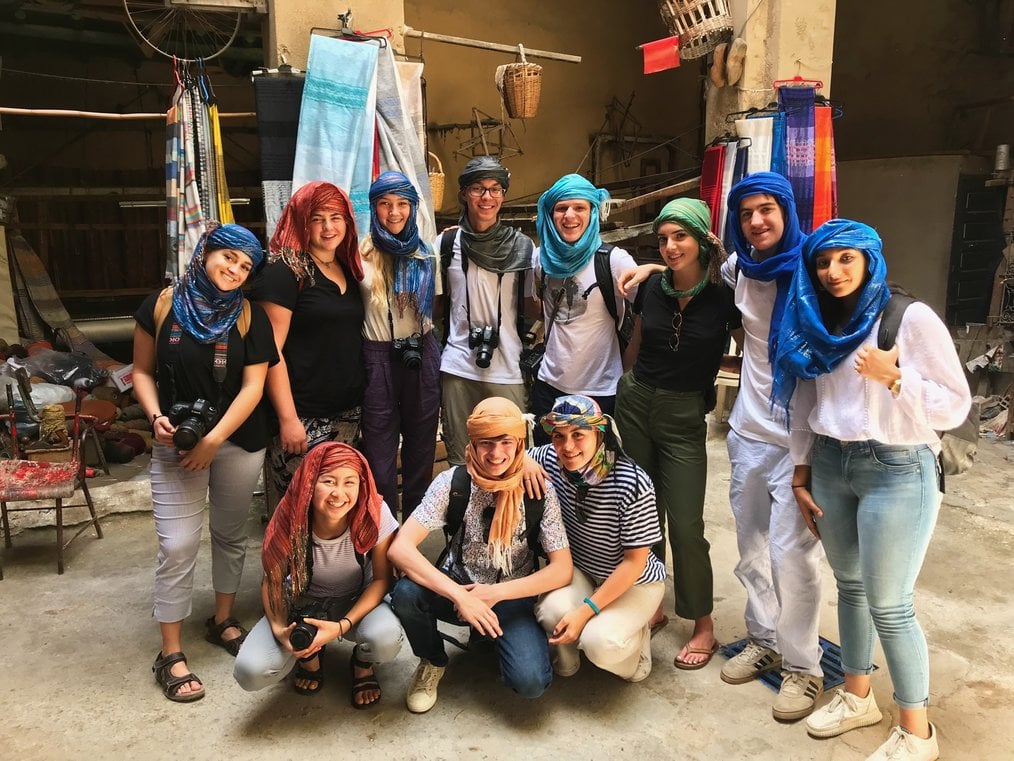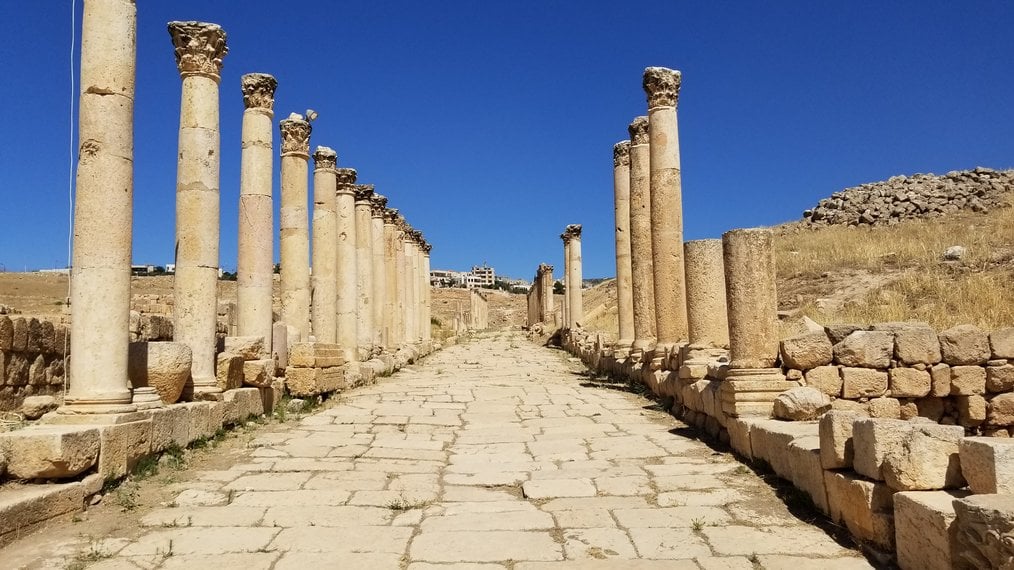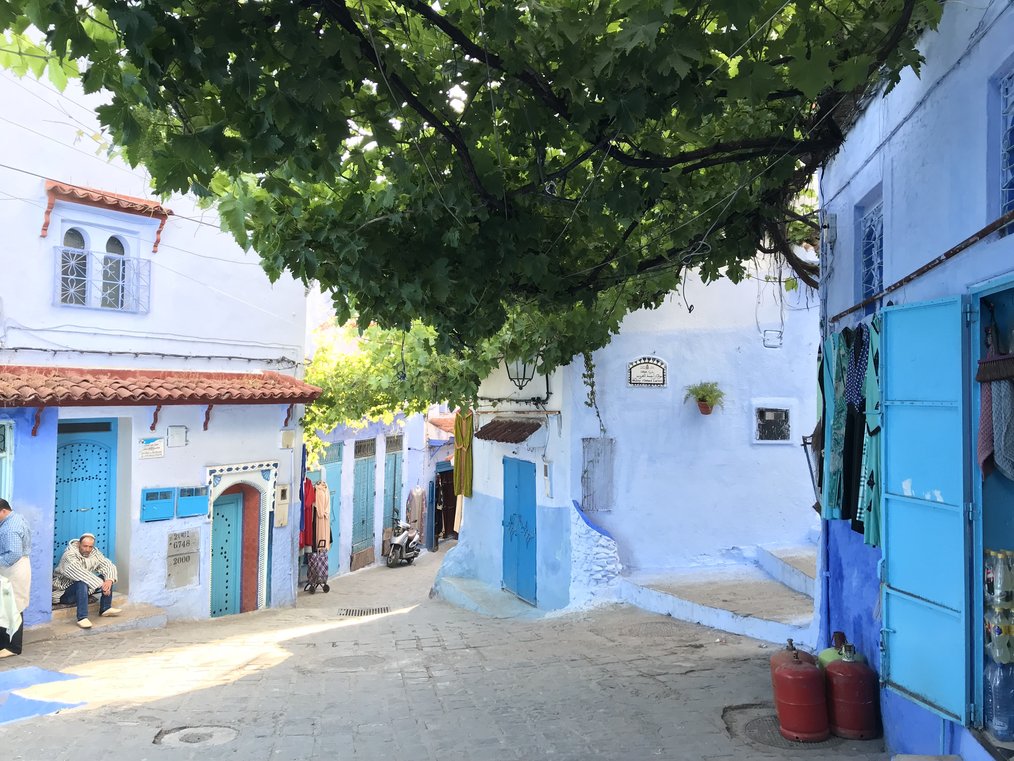What You Need to Know Before You Learn Arabic Abroad
Preparing to learn Arabic abroad? Explore our list of pointers to help you have a successful time overseas.

Whether you’ve chosen to learn Arabic abroad to study the Qur’an, for future employment opportunities or you just like the cute, squiggly letters, Arabic is still among the most difficult languages to learn, next to Mandarin and Korean.
Choosing to learn Arabic was not something I had been dreaming of since childhood, rather, the opportunity was presented to me in college. I had heard that the Middle Eastern and North African Studies department at the University of Arizona was offering study abroad scholarships, so I immediately applied. I spent a summer in Jordan and a couple years later, studied in Morocco for a semester.
Both my experiences were unique of each other but provided many life-lessons to which I can attribute my own growth Learning Arabic abroad is a challenging and rewarding experience filled with cultural and linguistic lessons around every corner.
Through trial and error, I learned a few difficult lessons while learning Arabic abroad. Below are a few pointers that may guide your experience to be successful and safe!
It's Not Rude to Speak Over One Another in Greetings
'Salam alaikum', 'alaikum wa salam', 'Kefik?', 'Kul Shi Behkair?' 'Alhamdulilah'
These are all common greetings in Arabic that are being said simultaneously and without a real response. An authentic Arabic greeting is more like a battle of the wits -- who can say the most, the fastest and embrace the other with numerous kisses to the cheeks.
There isn’t a rule of thumb of how many kisses or how many greetings before it is socially acceptable to move along with your day, but from personal experience, the more, the better.
It is part of the culture to be warm-hearted and open so, take advantage of this language-learning opportunity and greet everyone you see! Keep in mind that it is not culturally appropriate to physically greet someone that you don’t know (stranger danger!) or if they are of the opposite gender.
Modern Standard Arabic is the Basis -- but There's a Huge Range of Dialects

In general, each country or region in the Middle East speaks a different dialect of Arabic. Modern Standard Arabic (MSA) is the dialect you will most likely learn first as an Arabic student. You will find it in textbooks, newspapers, and Google Translate, yet it is not spoken or understood by much of the public. Learning Modern Standard Arabic is an important first step in learning the language as it is the foundation that all other dialects stem from.
Although learning the classical dialect (MSA) is significantly useful, it is beneficial to learn the dialect of the country in which you are living to best communicate with the local population.
For example, Egyptians speak Egyptian Arabic or Masri; Jordanians, Syrians, Palestinians and the Lebanese speak a form of Levantine Arabic or Shaami; Emiratis (UAE) and Saudis speak a form of Gulf Arabic or Khaleeji; and so on. At first, the diverse range of dialects may seem daunting, but after some time, you should be able to identify the different regional sounds and characteristics.
"Insha'allah" is a Powerful Phrase
Insha'allah literally means, "God willing", but culturally it either means 'never' or 'likely.' For example, you may be speaking with someone about the weather and, “Insha’allah, the weather will get warmer soon.” You’ll need to know a bit about where the speaker is from and the context of their phrase to get the true meaning.
Weather is just one example, but the Arabic-speaking parts of the world are infamously known for its ambiguousness when making plans or speaking wishfully about the future. If ‘Insha’allah’ was culturally translated to English, it would be something like, “I’ll have to check my schedule and get back to you.” It is like playing a perpetual game of insha’allah identification.
As it was explained to me once by an Arab friend, everything is up to God’s will, whether it be the weather or if she can make it to our coffee date the next day. Either way, as a non-native speaker, insha’allah will be cryptic in translation and interpretation in most situations.
Practice Your Arabic in Public
Don't be scared to practice your Arabic in public! Although you may begin by using Modern Standard Arabic instead of the regional dialect, you will pick up on local phrases and accents just by speaking with taxi drivers, shopkeepers and restaurant staff.
You may say the wrong thing or sound strange using Modern Standard Arabic, but practicing your Arabic in the neighborhood is vital to your abroad language experience. You will pick up the language much quicker by immersing yourself in the culture.
Learn Grammar, but Be Willing to Throw Out the Rules

Learning Arabic means learning grammar rules that you'll spend weeks -- no, probably years -- learning, only to find out that native speakers don't use these rules in the spoken language at all. This is a reality of learning basically every language, and it’s definitely true for Arabic.
Arabic grammar is important for reading and writing comprehension, but not so much speaking. As mentioned earlier, the spoken language is much different than the standardized language so don’t stress yourself out when the instructor is overemphasizing the use of ‘verbal sentences’ over ‘nominal sentences’.
Depending on your long-term goals with Arabic, you may decide that developing your Modern Standard Arabic and Grammar is unnecessary. In the meantime, learn the basics and be patient with yourself.
Take Notes to Master Common Phrases
During my first trip to the Middle East, I was under the impression that I could get anywhere in a taxi by simply stating the location in which I wanted to go. Little did I know that my ignorance to simple utterances would get me lost in the middle of the night in the heart of Amman, Jordan.
Again, a similar situation occurred in Morocco. Even after over three years of learning Arabic, the language barrier between my taxi driver and my English-accented, Levantine-MSA blended dialect was immense. If I would have taken the time to learn basic phrases in the local dialect, I wouldn’t have been caught in these conundrums.
Much of the vocabulary you will need to go shopping in the market or get around by foot or taxi is not taught in a ‘normal’ Arabic curriculum (unless you are taking a dialect course). To avoid misunderstandings and the risk of getting lost or in dangerous situations like myself, carry a small notebook with common words/phrases in the local dialect such as 'left', 'right', 'stop here', 'how much?', ‘I need help’ etc…
No matter your reason for learning Arabic abroad, you will meet many other like-minded people that love to travel, explore and learn languages. You will most likely gain life-long friends that will forever hold a place in your heart. To this day, one of my closest friends is Moroccan. It is through these relationships that make each abroad experience truly unique.
Make mistakes and foster relationships because the Middle East is bustling with friendly people, eager to speak Arabic with you!
